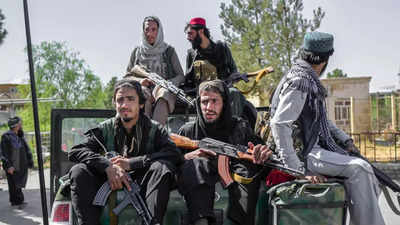Manas Dasgupta
NEW DELHI, Sept 21: There may be light at the end of the dark tunnel. For girls and women in Afghanistan under the Taliban dispensation, the future looks dark but the hopes were rekindled on Tuesday when a senior Taliban leader said it was “working” to re-open schools for girls and allow the women to resume jobs.
“The Taliban administration in Afghanistan is working towards reopening high school education for girls,” the Taliban spokesman Zabihullah Mujahid told a press conference in Kabul on Tuesday.
The Taliban administration last week allowed re-opening of schools, which had remained closed since the Taliban take-over of the country in August. But the schools were asked only to take in boy students and to be taught only by male teachers. It did not give any indication of its plans about the girls who were not allowed to attend schools during the Taliban’s previous rule in Afghanistan from 1996 to 2001 when it was driven out by the US forces following the 9/11 terror strike in New York.
Even on Tuesday, the Taliban spokesman did not give any time frame when the Taliban would open the schools for girls but only gave an assurance that its administration was “working” in this direction.
The Taliban has repeatedly claimed that it had changed from what it was 20 years ago when they barred women from leaving home without a male relative accompanying and shut down the schools for girls, but its actions so far belied its claims. It stirred skepticism when they said last week that they would open schools for high school-aged boys but not girls.
“In the case of schools (for female students), the ministry of education is working hard to provide the ground for the education of high school girls as soon as possible, work is under way on the procedure, and it is hoped that this will be done, God willing,” Mujahid said. Younger girls in primary schools and elderly in some of the universities have already resumed studies but in segregated classes.
The Amnesty International on Tuesday released a briefing on the deterioration of human rights since the Taliban took over, saying some women’s rights were under threat while protests on the matter had been violently suppressed. Mujahid said at the briefing that “work is ongoing” on barriers to women’s ability to work, without providing details.
“We are trying to strengthen the cabinet further, and God willing, women will be appointed to certain positions in the necessary sections, and one day we will announce (their names) here,” he said.
The Taliban on Tuesday also announced appointments of some deputy ministers but none of them were women nor it had any female member in the 33-member “interim government” it had announced earlier despite the international community demanding the Taliban to form an “inclusive” government giving representation to all sections of the society, particularly women and members from the civil society.
For the international community, there was a silver lining as the Taliban insisted that there was no place for terror organisations like Islamic State and Al Qaeda in Afghanistan under Taliban. Its rulers said on Tuesday that there was no evidence of Islamic State or Al Qaeda militants being in the country, days after Islamic State claimed responsibility for bomb attacks in the eastern city of Jalalabad. Since toppling the Western-backed government in Kabul last month, the Taliban have faced pressure from the international community to renounce ties with Al Qaeda, the group behind the Sept. 11, 2001, attacks on the United States. At the same time, they have had to deal with a series of attacks claimed by an affiliate of Islamic State, with which they have been in conflict for several years over a mix of economic and ideological disputes.
Besides women, also worried are the Afghan merchants who fear for their future as the Taliban takeover had raised costs. Merchants in the historic Afghan trading city of Herat fear for their future after being hit by Taliban tax collection and a backlog for goods to clear customs. The country’s third-biggest city is a strategic hub along the ancient Silk Road — with nearby borders to Iran and Turkmenistan — and is a key generator of revenue for the country. Although the Taliban blame rampant corruption by the previous government for a rise in costs for importers, businessmen in Herat said their future were doomed if the hardline Islamists did not lower taxes.

